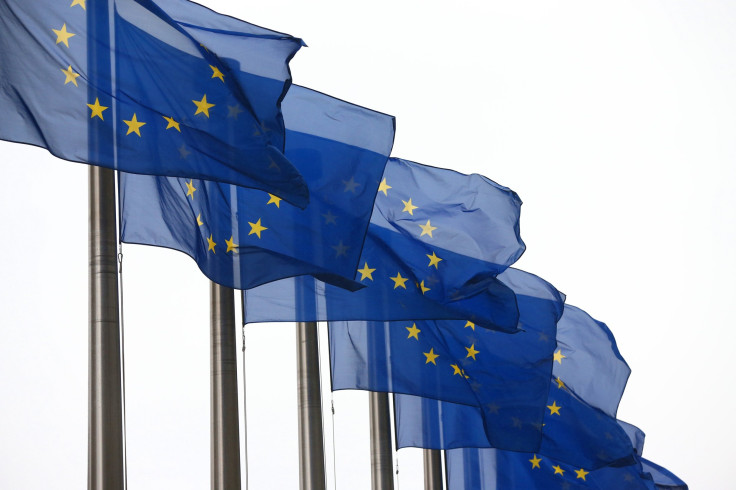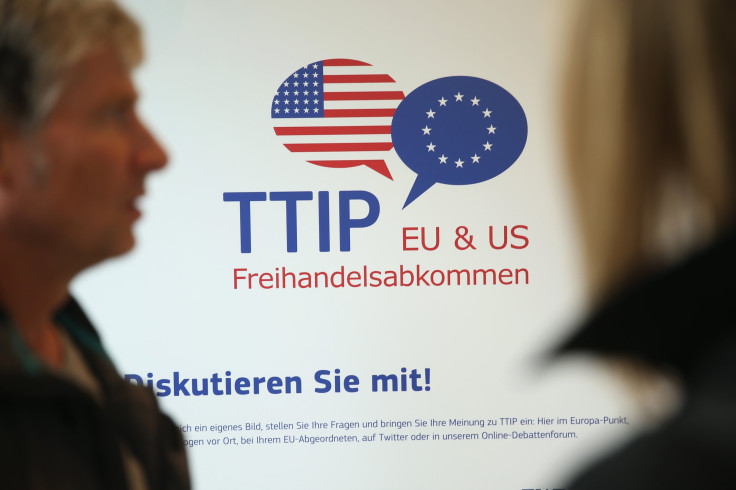European Travel 2016: Loss Of EU Visa Waiver Could Threaten US Tourism, Business And Trade

Tourists planning to visit the Eiffel Tower or London Bridge would not be the only ones affected in the event the European Commission were to choose to end its visa waiver program with the U.S. Trans-Atlantic business relationships were also at stake as European Union officials reviewed Tuesday the 15-year-old program that has allowed Americans to travel to EU countries for as long as 90 days without a visa.
While any shuttering of the visa waiver program is unlikely to be ratified by European national parliaments that have long recognized the value of U.S. tourism, some economic experts said there is a very real possibility the issue could cause political spillover in the negotiations over the proposed Transatlantic Trade and Investment Partnership (TTIP), an EU-U.S. agreement that has been three years in the making.
“There’s no doubt that if the EU were to slap a visa requirement on the U.S., it would be very, very bad news for the European tourism industry,” said Jacob Funk Kirkegaard, a senior fellow at the Peterson Institute for International Economics, a think tank based in Washington. “It would also quite frankly send the wrong political signal in the middle of TTIP negotiations,” he said.
The visa waiver program began in 2001, and it allows U.S. citizens to travel to Europe for as long as 90 days on business or pleasure without having to apply for a visa. In turn, the U.S. has extended the same courtesy to citizens of most EU countries, with five exceptions: Bulgaria, Croatia, Cyprus, Poland and Romania. After the European Commission formally reported the difference in visa requirements for these countries in 2014, the EU put pressure on the U.S. to include these nations in the visa program. Citing security concerns, however, the U.S. has refused to extend the visa waiver program to them, leading the EU to threaten to rescind its program for U.S. citizens. It is expected to make a decision on revoking visa waivers for U.S. citizens in coming months.
The U.S. State Department did not express concern that the visa waivers would be taken away, however. “We have maintained an open dialogue with EU officials — as well as officials from those member states that require visas for travel to the United States — on this matter,” said Julia Mason, a State Department representative. “It is premature to speculate on an imposition of visas on U.S. citizens.”
After terrorist attacks in Brussels and Paris in the past year that were carried out by EU nationals, the U.S. also restricted its visa waiver program to exclude Europeans who had traveled to Iran, Iraq, Sudan or Syria.
The visa waiver program for U.S. citizens visiting Europe has facilitated both business and leisure travel in the years since it was implemented in 2001. Millions of U.S. tourists visit EU countries every year, and the number of travelers to Europe began skyrocketing in 2014 as the dollar became stronger against the euro. The growth is set to continue, with U.S. travel to the EU slated to increase by 5.3 percent in the 2014-2019 period, according to the European Travel Commission.
With U.S.-based multinational corporations such as Coca-Cola and DuPont annually booking billions of dollars in European revenue, it is also easier for executives to conduct business across the Atlantic with the aid of the visa waiver program. At least 10 percent of all U.S. travel to Europe in 2014 was for the purpose of business, and visa requirements could potentially ratchet that down.
Multinational corporations would likely find a way around visa restrictions, possibly with multi-entry visas. If visa waivers were eliminated, however, executives might initially be less able to hop on a plane from New York to Paris at a moment’s notice. “At the margin, of course, there might be business trips that were not made, investments that were not pitched,” said the Peterson Institute’s Kirkegaard.

If the European Commission decides to get rid of the visa waiver program, the move’s impact could be limited by the fact the European Parliament and individual European governments can veto it, and they likely would, according to Hosuk Lee-Makiyama, director of the European Center for International Political Economy, a think tank based in Brussels.
“Their tourism revenues, the business mobility, it’s not a joking matter for France, Spain, or the U.K.,” Lee-Makiyama said Tuesday. “Solidarity with the U.S. is perhaps stronger than solidarity with the EU.”
Regardless of the outcome of the visa waiver discussions, it would not affect parallel negotiations on TTIP, according to Lee-Makiyama. “Negotiations tend to be rather compartmentalized affairs,” he said.
The proposed trade agreement would in part facilitate the mobility of EU companies that want to go to the U.S., while also expanding export agreements. TTIP has been on the table since 2013, and its proponents have increasingly pushed for its adoption before elections in the U.S., Germany and France change any of the key leaders involved in its development.
“If you really want this, it needs to be completed during this [U.S.] presidency,” John Emerson, the U.S. ambassador to Germany, told Politico.

Despite recent strain over differences in how best to control borders and fight the growing threat of terrorism worldwide, the EU and the U.S. continue to enjoy close diplomatic and economic relationships, and the majority of EU member states would not sacrifice those relationships with the U.S. for the sake of the five European countries treated different from the rest in visa matters, experts said.
“It will come down to the solidarity between the EU member states,” said Lee-Makiyama of the European Center for International Political Economy. “They have been very firm in the wording, but not necessarily taking retaliatory measures when it comes down to it.”
© Copyright IBTimes 2025. All rights reserved.






















